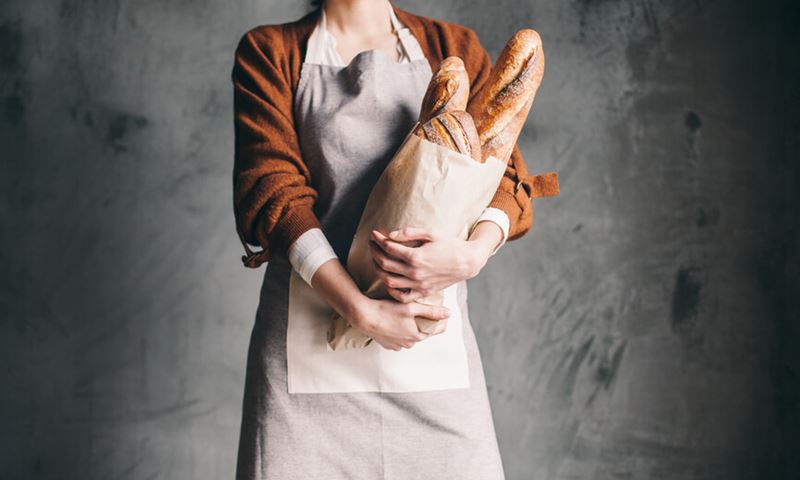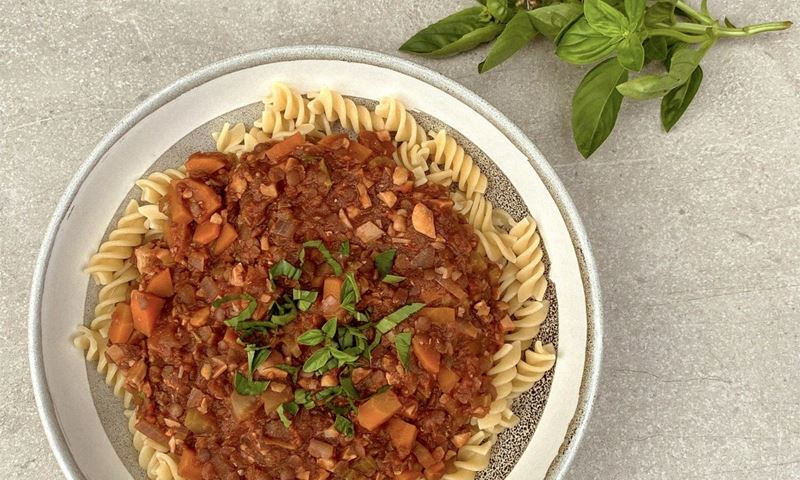 Have you ever looked on with skepticism upon hearing the phrase ‘gluten free diet’? No, it’s not just another health food fad. Gluten-free diet restrictions are generally bred (pun intended) from an allergy or intolerance to – you guessed it – gluten.
Have you ever looked on with skepticism upon hearing the phrase ‘gluten free diet’? No, it’s not just another health food fad. Gluten-free diet restrictions are generally bred (pun intended) from an allergy or intolerance to – you guessed it – gluten.
What is gluten?
You may be familiar with the regular supermarket aisle packaging phrases including, ‘Gluten free’, ‘May contain traces of gluten’ and ‘Contains gluten’. It seems the more we see these labels plastered on obscure shelf items, the more confused we become – making it difficult to discern what gluten is and which products it naturally occurs in.
Gluten is a protein that can be found in various wheat and mixed grain products, including barley, rye and oats. Gluten is well known as the sticky part of dough that lends it its essential elastic texture. This means gluten can often be found in cereals and baking products, pasta and noodles, bread, cakes, biscuits and more. Better Health Channel’s Gluten fact sheet list some meat products (e.g. sausages and meat pies), dairy products (some ice creams and soy milks), snacks and alcoholic drinks that may also contain gluten.
Coeliac disease, explained
Coeliac disease (pronounced sea-lee-ak) is the term used to describe a person’s inability to adequately digest anything containing gluten – it is the most severe form of gluten intolerance.
Our small intestines do the big job of digesting and absorbing the majority of all the food and nutrients we put into our bodies. Our intestines are lined with ‘villi’, a tissue formation resembling wiggly fingers that serve to protect the bowel and effectively absorb nutrients from food. In someone with coeliac disease or gluten intolerance, their intestinal villi become inflamed and flattened.
Coeliac Australia explains coeliac disease as an abnormal reaction to gluten, triggering an inability to digest nutrients due to eroded villi and less surface area for absorption. This is also known as villous atrophy and can lead to small bowel damage and gastrointestinal or malabsorptive symptoms.
Coeliac Australia outlines potential symptoms of coeliac disease, which may include:
- Gastrointestinal symptoms e.g. diarrhoea, constipation, nausea, vomiting, flatulence, cramping, bloating, abdominal pain
- Weight loss
- Fatigue/lethargy
- Anaemia
- Fluctuating blood glucose levels
- Recurrent mouth ulcers and easy bruising of the skin
Processed vs unprocessed – what can you eat?
Naturally gluten free foods include nuts, eggs, fresh meats, fats and oils, gluten free grains and of course, a huge range of fruits and vegetables. Natural fresh fruit and vegetables are doubt-free, unprocessed gluten free goodness. The same goes for unprocessed meats, such as chicken, beef and pork – unprocessed is the best way to ensure you’re avoiding any gluten additives. Just be careful at a BBQ as condiments, sauces and marinades can contain gluten.
Looking for a carbohydrate alternative to bread? Unless it’s clearly labelled, bread and pasta are no-go zones for coeliacs. Try for brown rice or white rice – the unprocessed, plain rice kind. Though it may take a little longer to cook, there won’t be any sneaky gluten additives, as opposed to flavoured quick-rice sachets. There are several gluten free pasta options in most grocery stores – though be mindful of the sauce you use to coat your delicious spaghetti.
Why do people go Gluten Free?
 People may choose to go gluten free for a variety of reasons – the main reason being because of an irritation from consuming gluten products. A nationwide survey conducted from data gathered by the CSIRO found that around 1.8 million Australians were avoiding or limiting their consumption of wheat-based products.
People may choose to go gluten free for a variety of reasons – the main reason being because of an irritation from consuming gluten products. A nationwide survey conducted from data gathered by the CSIRO found that around 1.8 million Australians were avoiding or limiting their consumption of wheat-based products.
The Australian Dietary Guidelines state that grain-based foods are essential elements of a balanced diet – providing the daily dietary fibre intake for adults and children alike. However, the wheat consumption survey found that 7% of non-coeliac respondents avoided wheat due to negative gastrointestinal reactions – like bloating or wind – but not necessarily allergenic symptoms. That’s almost one in ten Australian adults abstaining from wheat/gluten products such as cakes, cereals and pasta without formal medical diagnosis!
According to Coeliac Australia, 1 in 70 Australians are affected by Coeliac disease, with around 80% of this number potentially undiagnosed. Early diagnosis and treatment of coeliac disease with a gluten free diet can alleviate and even reverse several of its associated health conditions. Coeliac disease, however, is an indefinite sensitivity to gluten; with a lifelong gluten free diet the only viable treatment.
Pros and cons
It’s important to always seek advice from your GP, dietitian, or nutritionist before upending your lifestyle. Who knows? It could be a dairy issue or Irritable Bowel Syndrome due to an inflammation from foods containing FODMAPS.
If it turns out that you are coeliac, going gluten free is an important adjustment that you will need to make for your health long-term. By omitting the gluten products that are causing tummy upsets, you are improving your digestive system tenfold. A sustained gluten free diet will rid coeliacs of the looming diarrhea, bloating, wind or any of the other abdominal upsets that have been weighing them down.
Indeed, it will require a lot of willpower and strength to adjust your everyday menu; but with a multitude of gluten free options on the market, you can definitely resume your regular eating habits with small ingredient tweaks. Take extra care of your digestive system by being mindful of the amount of processed gluten free products you consume – this means being aware of over-consumption of convenience gluten free shelf items. These products may be heavily processed, containing additives, replacement flours and added sugars (to make them taste better) that can lead to potential weight gain. That’s not to say you shouldn’t enjoy gluten free pasta, noodles or tortillas – just make sure they’re on rotation with naturally gluten free foods. Everything in moderation, including moderation. Better crack open a gluten free beer to celebrate!



